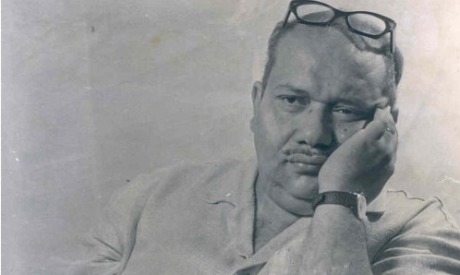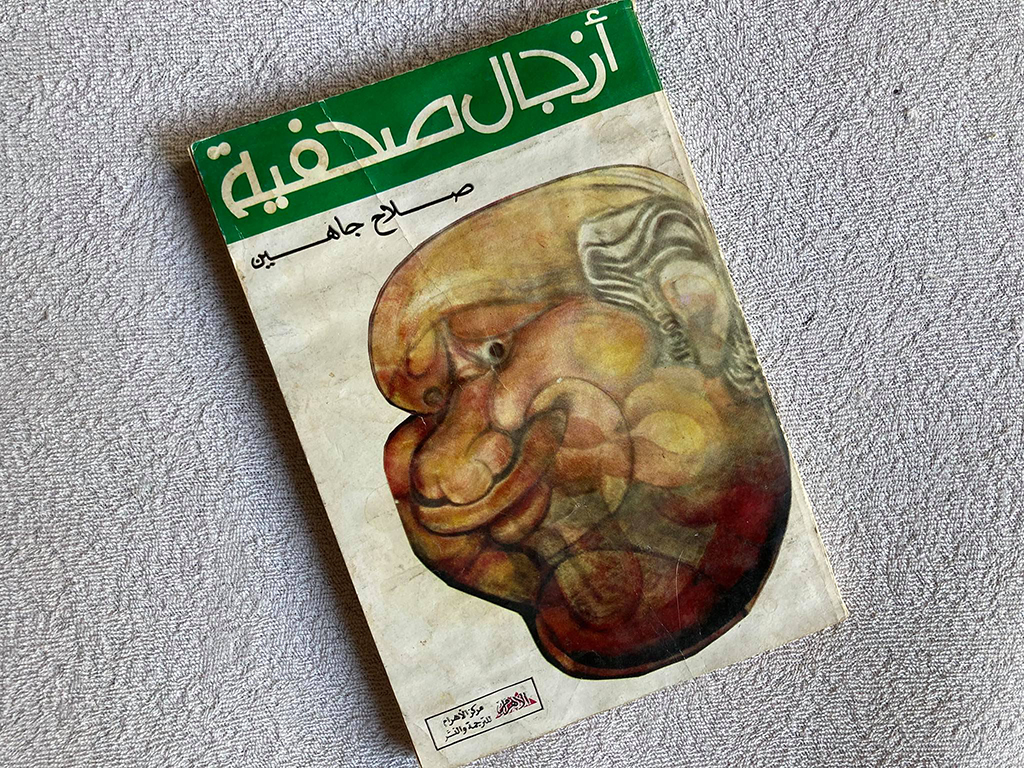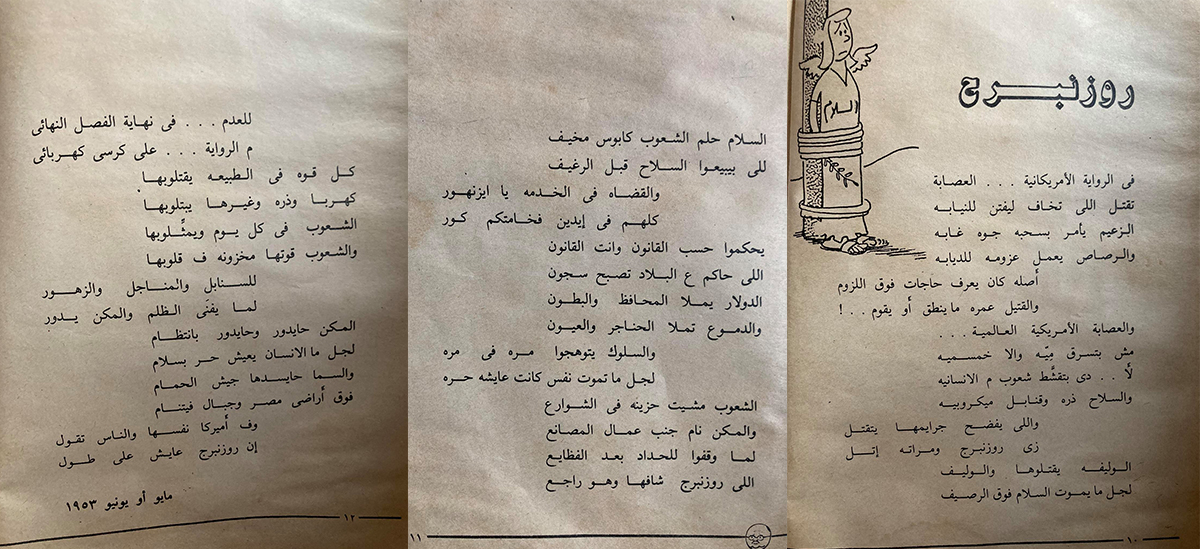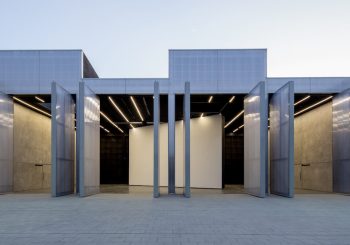Known for many a thing, from his ruba’iyat (quatrains) to his memorable songs from some of Egypt’s most beloved plays and films, the late Salah Jahin left behind a legend through his brilliant and unique use of words.
The late Egyptian poet and lyricist was a pioneer in the development and revolutionary use of colloquial Arabic in poetry, as opposed to the more commonly used (and rather more difficult to understand) fusha (classical) Arabic. Jahin, along with poets such as Fouad Haddad, Abdelrahman el Abnudi and many others to follow, managed to colloquialize poetry, making it both relatable and accessible to the general public.
In addition to this, Jahin was also known as ‘the poet of the revolution’ as a lot of his work was greatly inspired by the 1952 Egyptian revolution, which he felt very strongly about. That being said, politics did indeed greatly influence a lot of Jahin’s poetry, having ultimately developed a form of political poetry.
Jahin, of course, is more famously known for his unparalleled takes on everyday Egyptian life that can be found in his famous ruba’iyat, as well as his lighter-hearted, yet strikingly memorable, lyrics that can be found in plays such as El Leila el Kebira (The Grand Night) and films such as Khali Balak mn Zouzou (Take Care of Zouzou).
However, aside from that, Jahin also worked closely with various Egyptian publications and newspapers. He had worked with the popular Egyptian weekly magazine ‘Rosalyousef’ as a cartoonist in the early 1950s, later on having moved to Sabah el Kheir (Good Morning) magazine and then Al Ahram.

Having been involved in journalism, Jahin married poetry and journalism in a way that was both unique and powerful. He wrote numerous political poems that reflected on certain situations taking place at the time throughout the country, and they would be published and widely circulated in various newspapers.
This idea of reflecting on the country’s stance through poetry, and having these poems published in reputable national newspapers is something that was innovative, memorable and rich with feeling and passion. It is also something that unfortunately no longer exists.
It is quite rare for poetry to be published in any newspaper around the world these days, let alone in Egyptian newspapers. Although political poetry, and generally expressing strong views or opinions through poetry or art in general, is very much alive and well and prevalent all over the world – it is the marriage of this art form with journalism that is rarely ever seen or heard of.
Journalism is known for its rather ‘serious’ nature, with journalistic writing taking a more direct and rigid approach in discussing a certain topic or issue. As such, many people might find that there is no room for the more expressive and illustrative writing of poetry in journalism. In addition to this, journalism is supposed to be strictly objective while poetry – or any art form in general – is built on subjectivity.
In any case, words are undoubtedly powerful. And when the rich and eloquent words of a great mind such as Jahin reflects on the world around us, their power can effortlessly be etched in the minds of many – leaving food for thought. At the end of the day, isn’t that a part of what journalism is about? Leaving audiences with food for thought.
Below is a translated example of one of Jahin’s published political poems, taken from the book Azgal Sahafeya (Journalistic Prose/Thoughts) by Salah Jahin.
Rosenberg
In American stories, gangs kill
Those who are suspected of tattletale to authorities.
The leader orders him into the jungle
And the bullet acts as a welcome to the wolves.
He knew too much,
And those dead cannot rise and speak!
And notorious American gangs,
Do not steal hundreds or thousands.
No, they steal people’s humanity.
With atomic weapons and microbial bombs.
And those who expose their crimes get killed.
Such as Rosenberg and his wife Ethel.
And the wife and husband get killed.
So that peace may die on the pavement.
Peace is a dream, and people are a scary nightmare
When they sell weapons before bread.
And the judges are at your disposal Eisenhower,
They are all moldable balls in your hands.
They judge according to the law, and you are the law.
The one who leads the country into imprisonment.
Dollars fill wallets and stomachs.
And tears fill throats and eyes.
And behavior shifts bit by bit,
Till the idea of freedom dies.
The people walk sadly in the streets,
And the machines sleep next to the factory workers.
When they stood to mourn the atrocities
Rosenberg witnessed upon his return.
All for nothing… as in the end of the last chapter of the story,
He was met with an electric chair.
They use every force in nature to kill,
Electric, Atomic and more, to ensure destruction.
And ever day, they further mutate the people.
But the people, their strength is stored in their hearts.
For their ears, their sickles and their flowers,
For when injustice ends, and machines run once again.
And the machines will and run systematically,
So that humans may live freely in peace.
And the sky will be covered in an army of doves,
Flying over Egypt’s land and Vietnam’s mountains.
Even in America, where people will say,
Rosenberg lives on forever.
-May or June 1953








Comment (1)
[…] Salah Jahin’s Political Poetry: When Poetry and Journalism Worked Hand in Hand […]